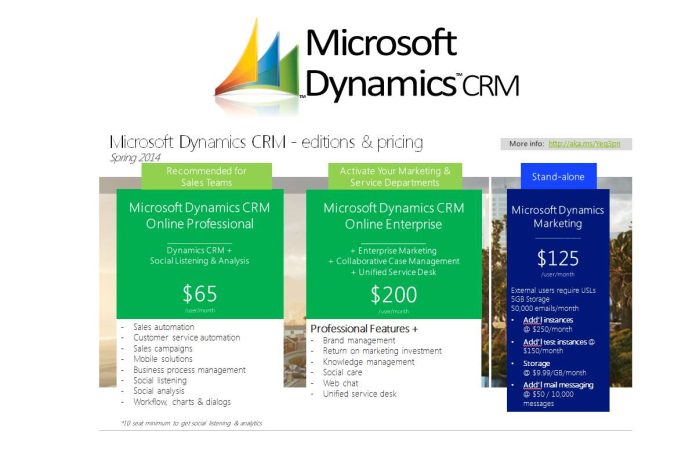Customer relationship management (CRM) has transformed into a fundamental requirement in the world of modern business. Businesses in many sectors are using CRM technologies to improve interactions with clients, optimize processes and gain a competitive advantage. As a top CRM platform, Microsoft Dynamics 365 CRM has established itself as a full-featured toolkit for enterprises of all kinds. To make decisions that are in line with your organization’s goals and budget, you must first comprehend Microsoft Dynamics 365 CRM cost before plunging into the realm of CRM.Today, we’ll examine the key facets of Microsoft Dynamics 365 CRM price, illuminating its different elements and factors.
Table of Contents
1. Licensing Options and Costs
The license choices that determine the price to access the CRM platform are at the heart of Microsoft Dynamics 365 CRM pricing . Microsoft provides a range of license types to meet various corporate needs. The main types of licensing are:
User-based Licensing
The number of users that need access to the CRM system is taken into account when determining the cost under this popular method. Microsoft provides many user kinds, such as full users and team members, with differing degrees of capabilities. Microsoft Dynamics 365 CRM pricing will vary according to the quantity of full users, who require full access to all CRM capabilities, and team members, who just need restricted access.
Device-based Licensing
In this model, the CRM software is licensed for certain hardware instead of specific users. Device licensing could be useful for businesses when several staff share computers for CRM use, thereby lowering total license costs.
Subscription Plans
For Dynamics 365 CRM, Microsoft offers a variety of subscription packages catered to diverse company requirements. These packages are divided into three categories: Essential, Basic, and Professional, each of which offers various degrees of features and functionality at various pricing points. Organizations can select the strategy that best suits their unique needs and financial constraints.
2. Implementation Costs
Costs associated with implementing Microsoft Dynamics 365 CRM vary from initial setup through deployment and integration. The costs of implementation might change depending on things like:
Deployment Method
On-site or cloud deployments of Microsoft Dynamics 365 CRM are both options. The initial costs for hardware, infrastructure, and IT support for on-premises deployment might be rather high. However, because Microsoft manages the infrastructure and upkeep, cloud-based adoption often has cheaper upfront expenses.
Customization
A lot of companies need to customize the CRM to fit their own business procedures. The cost of customization will vary according to how intricate and extensive the changes are.
Data Migration
Costs associated with transferring current customer data from old systems to the new CRM can be high, particularly for big businesses with enormous volumes of historical data.
Integration
For a fluid workflow, Microsoft Dynamics 365 CRM must be integrated with other systems and apps. The cost of integration will vary according to the number of systems integrated, how difficult the integration is, and whether or not third-party tools are required.
3. Ongoing Costs and Support
Beyond the initial implementation, it’s essential to consider the ongoing costs associated with Microsoft Dynamics 365 CRM:
Licensing Renewal
Depending on the chosen plan, CRM licensing often entails yearly or monthly subscription payments. In order to continue having access to the CRM platform and getting upgrades and support, organizations must budget for these ongoing expenses.
Support and Maintenance
Companies may choose extra technical support and maintenance services, either from Microsoft or through third-party suppliers, depending on the amount of technical competence inside the organization. With dependable assistance, any problems are resolved quickly, saving downtime and enhancing CRM efficiency.
Training
End-user training is crucial for ensuring effective CRM adoption and best use. On-site or online training sessions, access to training resources, and periodic refresher courses are all possible components of training expenditures.
4. Scalability and Flexibility
For organizations of all sizes, Microsoft Dynamics 365 CRM price offers flexibility and scalability. Adding new users, upgrading to more expensive subscription plans, or integrating new modules and features are all simple things that an organization may do as it expands. This scalability guarantees that the CRM system may change to meet evolving company demands without generating a lot of additional expense.
Powerful and adaptable CRM software like Microsoft Dynamics 365 CRM may have a big positive impact on firms in a variety of sectors. Making educated judgments on the CRM investment requires having a solid understanding of Microsoft Dynamics 365 CRM cost. Organizations may choose the best CRM plan and deployment strategy that fits their objectives and budget by weighing license alternatives, installation costs, ongoing costs, and possible ROI.
Keep in mind that Microsoft Dynamics 365 CRM is an investment in strengthening client connections, maximizing sales and marketing activities, and eventually expanding your company in a cutthroat industry. Working with reputable and trustworthy CRM consultants and suppliers is super important if you want to get the most out of your investment in Microsoft Dynamics 365 CRM. They can help and guide you through the implementation process, continually offering support. Microsoft Dynamics 365 CRM has the potential to completely transform your company’s success with the appropriate strategy and use.

